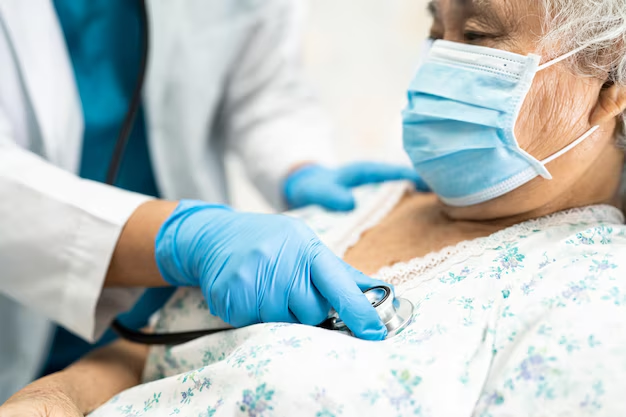Your Guide to Do And Don'ts After Cataract Surgery
What You Get:
Free Guide
Free, helpful information about Cataract FAQ and related Do And Don'ts After Cataract Surgery topics.
Helpful Information
Get clear and easy-to-understand details about Do And Don'ts After Cataract Surgery topics and resources.
Personalized Offers
Answer a few optional questions to receive offers or information related to Cataract FAQ. The survey is optional and not required to access your free guide.
Navigating Recovery: Important Dos and Don'ts After Cataract Surgery
Cataract surgery can significantly improve your vision and quality of life, but it also requires careful post-operative care to ensure the best outcomes. Understanding what you should and shouldn't do after this procedure can accelerate healing, maximize results, and prevent complications. Let's delve into the crucial dos and don'ts following cataract surgery, designed to guide you through a successful recovery.
Understanding Cataract Surgery
Before we explore the specifics of post-surgery care, let's first clarify what cataract surgery involves. Cataracts are the clouding of the eye's natural lens, leading to impaired vision. During cataract surgery, this cloudy lens is removed and replaced with a clear artificial lens. The procedure is common and generally safe, offering improved vision for many.
Dos After Cataract Surgery
🟢 Follow Medical Instructions
Why: Your doctor will provide a specific set of instructions tailored to your case. Following these is crucial as they encompass best practices for healing based on your individual needs.
How:
- Use prescribed eye drops regularly to prevent infection and control inflammation.
- Attend all scheduled follow-up appointments to monitor your eye's healing progress.
🟢 Protect Your Eyes
Why: Your eyes are particularly sensitive after surgery and need protection from potential irritants and injury.
How:
- Wear protective eye gear, such as sunglasses, to shield your eyes from dust and bright light.
- Use an eye shield while sleeping to prevent accidental rubbing.
🟢 Maintain Cleanliness
Why: Keeping your eyes clean minimizes infection risks.
How:
- Wash your hands before touching your face or applying eye drops.
- Keep the surgery area dry and clean; avoid any exposure to soap or other chemicals.
🟢 Rest and Relaxation
Why: Your body and eyes need time to recover from the surgery.
How:
- Engage in light activities and gradually return to your regular routine.
- Take naps as necessary and avoid straining your eyes.
Don'ts After Cataract Surgery
🔴 Avoid Strenuous Activities
Why: Rigorous activities can increase eye pressure and hinder healing.
What to Skip:
- Heavier lifting, bending, or intense exercises.
- Swimming or using hot tubs for a few weeks post-operation.
🔴 Avoid Rubbing or Touching the Eyes
Why: The eye's surface is sensitive after surgery, and touching can introduce bacteria or disturb the healing process.
Remember:
- Employ gentle, preventive measures like wearing protective eyewear if needed.
🔴 Steer Clear of Environments with High Risks
Why: Dusty or windy conditions can irritate the eyes, increasing recovery time.
Tips:
- Stay indoors on particularly windy days.
- Use air purifiers at home to maintain clean air quality.
🔴 Postpone Makeup and Face Cream Usage
Why: Particles from cosmetics can irritate the eyes and pose an infection risk.
Guideline:
- Wait at least a week before applying eye makeup and consult your doctor for a safer timeline.
Taking Action: Empower Yourself with Knowledge
It's essential to empower yourself with the knowledge to make informed decisions about your recovery. Understanding your body's responses and changes is vital to gauging the healing process. Here’s how you can enhance your recovery:
Keep Records
- Document any changes in your vision or comfort levels and share these observations with your healthcare provider.
Stay Informed
- Read up on common symptoms that are normal during recovery (e.g., mild discomfort or itchiness) and those that need immediate attention (e.g., severe pain or vision loss).
Be Patient
- Allow yourself time to heal; eyesight improvements can vary, and it may take weeks or even months to see full results.
Common Concerns and Clarifications
Is It Normal to Experience Blurry Vision Post-Surgery?
Yes, experiencing blurry vision in the immediate aftermath is common. As the eye heals and adjusts to the new lens, clarity should gradually improve.
What If I Feel Severe Pain or Notice Worsening Symptoms?
If you experience significant pain, sudden deterioration in vision, or increased redness and swelling, contact your eye care specialist promptly. These can be signs of complications needing urgent care.
Long-Term Expectations
Your vision will continue to refine over several months. Most individuals are pleased with the visual acuity improvements post-surgery, though some may need to wear glasses for specific tasks like reading or driving.
Visually Distinct Summary: Key Takeaways
| Dos 👍 | Don'ts 👎 |
|---|---|
| Follow your doctor's instructions. | Avoid heavy lifting or strenuous activities. |
| Wear protective eyewear. | Don't rub or touch your eyes. |
| Keep your hands clean. | Avoid dusty or windy environments. |
| Rest and pace yourself. | Postpone wearing makeup and applying face creams. |
Final Insights
A smooth recovery from cataract surgery hinges on following a mix of mindful practices and adhering to medical guidelines. While these dos and don'ts offer a solid framework, always act on advice tailored to you by healthcare professionals. With patience and care, you're well on your way to reclaiming a clearer vision and a brighter perspective on everyday life.
What You Get:
Free Cataract FAQ Guide
Free, helpful information about Do And Don'ts After Cataract Surgery and related resources.

Helpful Information
Get clear, easy-to-understand details about Do And Don'ts After Cataract Surgery topics.

Optional Personalized Offers
Answer a few optional questions to see offers or information related to Cataract FAQ. Participation is not required to get your free guide.


